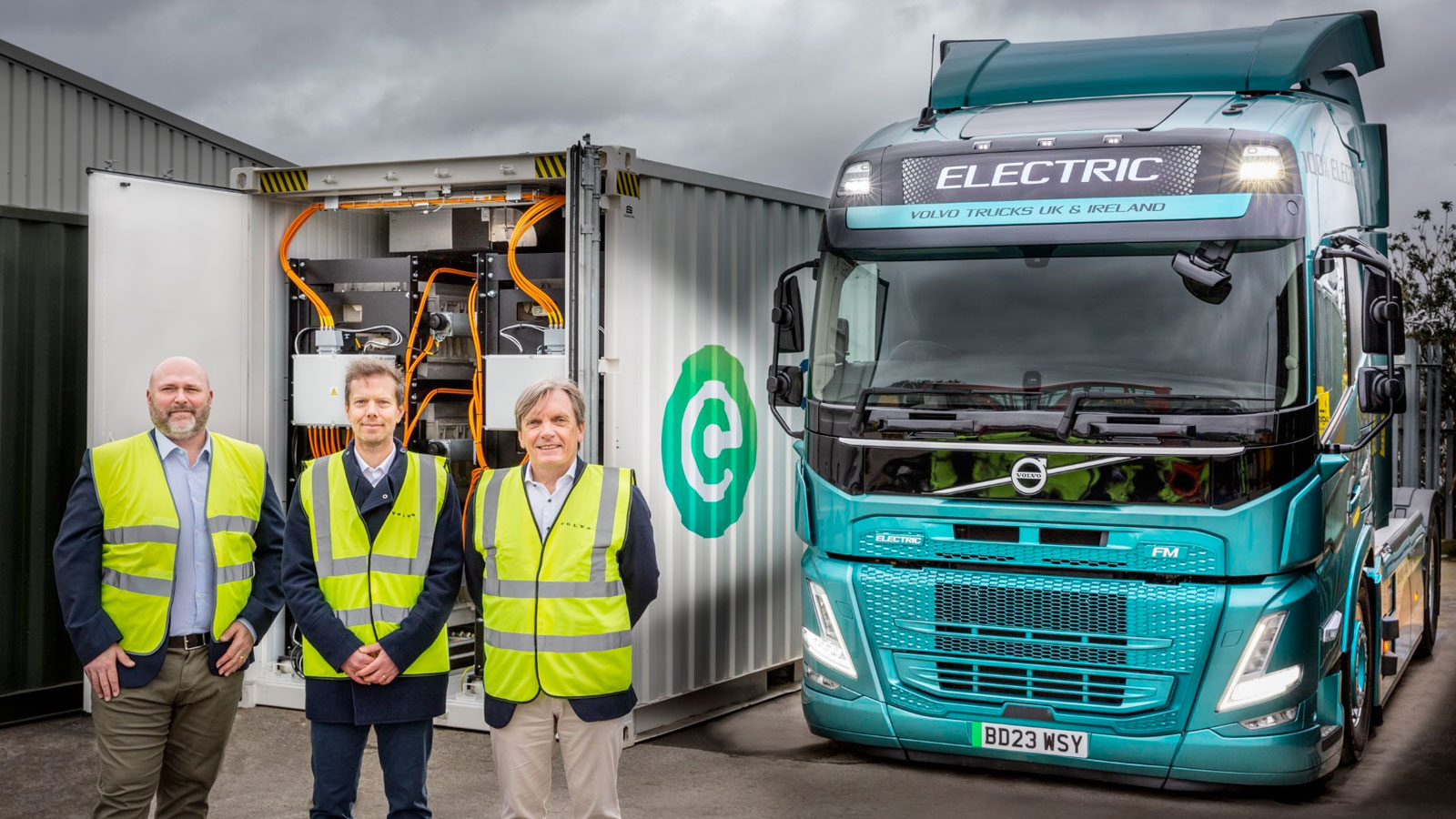Two UK Volvo Truck & Bus dealerships have installed second-life battery energy storage systems to help bolster their EV charging infrastructure amidst grid capacity constraints.
The dealerships, located in Carlisle and Enfield, aimed to introduce high-powered charging points for electric heavy goods vehicles (HGVs) and buses but faced limitations due to insufficient grid capacity.
The installation of electric vehicle (EV) charge points, essential for the transition to electric trucks, requires significantly more power compared to standard car chargers. This has presented a challenge for many sites due to limited electricity capacity.
To solve this issue, the dealers partnered with Connected Energy, which provided 300kW E-STOR systems to both locations. These systems enable the operation of high-capacity charge points and additional chargers for courtesy vehicles, ensuring the dealerships can meet their charging needs without exceeding grid limitations.
Christian Coolsaet, Managing Director of Volvo Trucks UK & Ireland, expressed the necessity of this initiative, stating, “As a market leader in electric trucks, it is important that we can provide high-powered charging at our key locations within our dealer network to support our customers whilst maintaining their electric trucks and buses. However, we are faced with grid capacity constraints at almost all our sites which is impacting our infrastructure plans.”
He further explained, “By installing Connected Energy’s battery energy storage systems, we can bring additional power onto the sites which helps us to move forward with the installation of high-powered charge points.”
The battery storage solutions align with Volvo’s broader efforts to reduce carbon emissions, incorporating renewable energy sources and transitioning to electric fleets.
The E-STOR system acts as an energy reserve, collecting power during low-demand periods and distributing it when needed. This approach allows the service centres to offer extensive EV charging facilities despite grid constraints. Additionally, the use of second-life batteries in the E-STOR system supports environmental sustainability and aligns with circular economy principles.
Matthew Lumsden, CEO of Connected Energy, commented, “Truck depots and service centres were not designed with EV charging in mind, so many of them are facing capacity issues as they look to extend their range into larger vehicles. E-STOR is often a more affordable alternative to expensive grid infrastructure upgrades – or in some cases the only option.”

